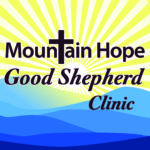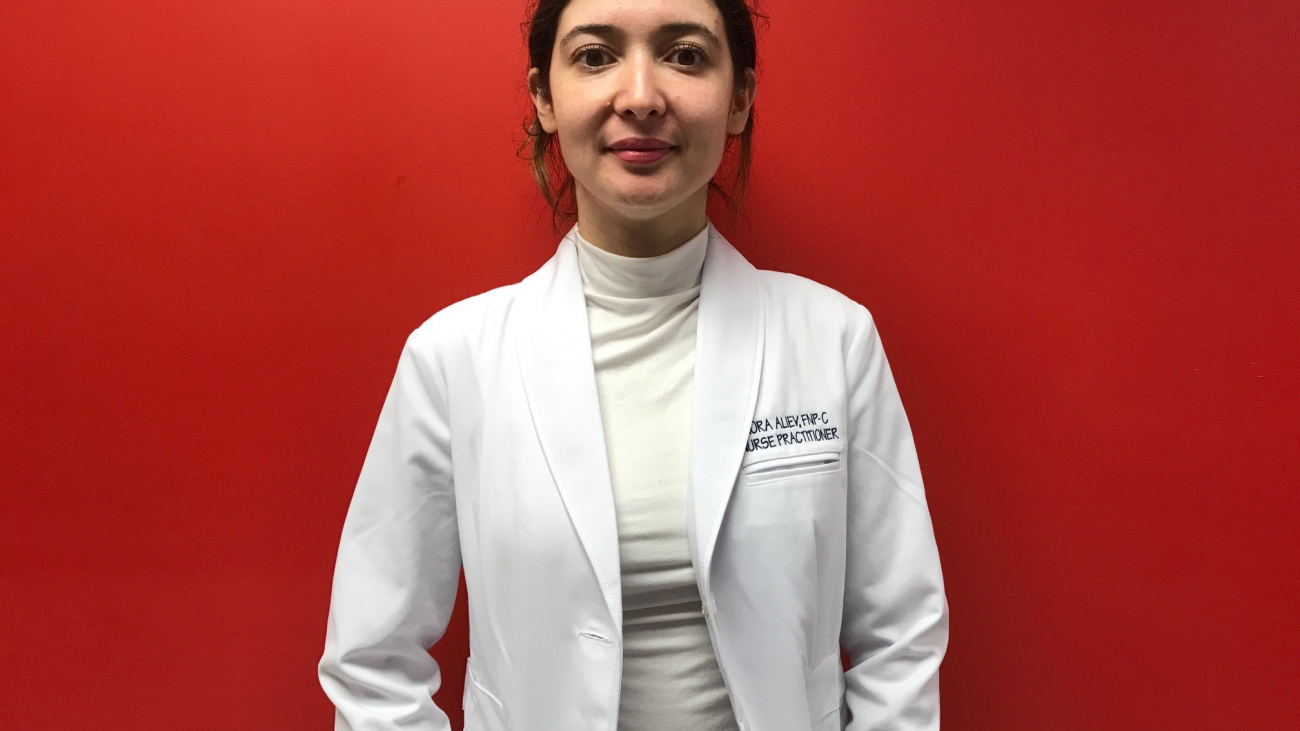 She was born in Germany to Russian and Uzbek parents and speaks four languages, but for Nargiza (Nora) Aliev, “this area feels like home.”
She was born in Germany to Russian and Uzbek parents and speaks four languages, but for Nargiza (Nora) Aliev, “this area feels like home.”
Nora is Mountain Hope Good Shepherd Clinic’s newest Family Nurse Practitioner. She’s excited about the Clinic and her work here. “I’m very passionate about health care,” she said.
She was born in Germany into a military family and moved a lot during her childhood. Her mother was Russian and her father was from Uzbekistan, once a Soviet republic and now an independent country. She speaks Russian, Uzbek and German as well as English.
She came to the United States at age 18 to attend college. She married Rahmat (Roma) Aliev, who was from Tennessee, and the couple moved here. They live in Sevierville with their four children. Rahmat fixes hail-damaged cars, traveling to wherever hailstorms hit. “He fixes cars; I fix people,” she laughed.
Nora has an associate’s degree in nursing from Walters State Community College. During her time there as a student, she volunteered at LeConte Medical Center in Sevierville. Next she graduated from East Tennessee State University with a bachelor’s degree in nursing.
She worked in LeConte’s intensive care unit at as an RN for three years before deciding to become a nurse practitioner. She said she reached a point where she wanted to take charge of patient care on her own. She became a FNP after two and a half years’ study at King University.
East Tennessee, which reminds her of parts of Germany, has been her home now for longer than she has lived elsewhere.
Preventive health care is a particular concern of hers. Though many Clinic patients don’t seek medical help until a condition has become acute, Nora sees education as a way to improve their situations. For example, a newly diagnosed diabetic needs to learn and understand the consequences of continuing poor eating habits, such as blindness or amputation. She says the Clinic should welcome patients whatever their situation, and make them comfortable in returning here as needed. The goal should always be to improve the patient’s quality of life, she said.
Nora manages her job and large family by being well-organized, particularly around the children’s schedules. She studied the piano intensively for years in her youth, and she likes to read, but no iPad for her. “I’m an old-school book reader” who likes to feel pages between her fingers, she said.



